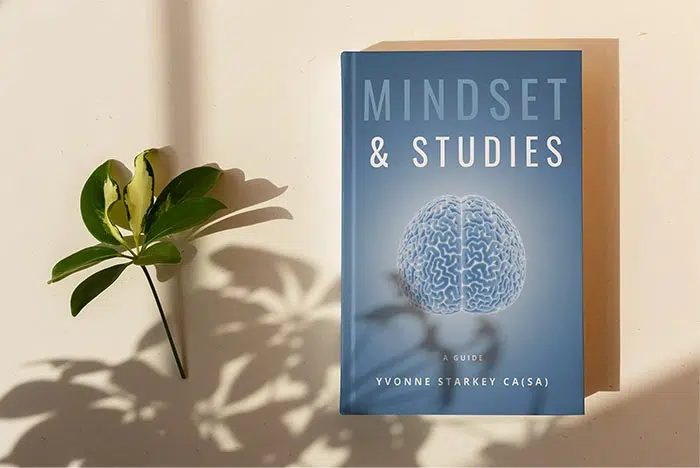I’ve lectured for over eight years, most of that being in the face-to-face environment. Shifting from that to our online learning platform has been fascinating and challenging for me, and I’m loving it! I often get queries from people about the pro’s and con’s of this form of learning, so I thought it was time to address some of those queries.
What is online learning?
There are various forms this can take, (I won’t cover all of them here), from online PDF’s and slides or notes, recordings of lectures that were made during face-to-face classes, voice-overs of slide presentations, white-board simulated lectures etc. Technology is increasingly becoming flexible and able to suit students’ differing learning styles.
Here are some of the methods we currently use:
- Videos with lecturer
Seeing the face of your lecturer helps to identify and stay focused
IAS 12 – 1. Deferred Tax Basic Principles
- Free-hand lectures
Watching the lecturer write out the notes and concepts as the lecture progresses is less ‘flat’ than slides, and allows students to follow the flow of the discussion, especially if you’re watching a lecturer work through a question
- Infographics
This is a great way to impart information visually and reduces theory notes by structuring information in a less-linear way
- Zoomable interfaces
Again, a less ‘flat’ approach to theory. Theory can be imparted visually, while maintaining the ‘big picture’ of the topic or concept.
Discussion forums; email queries; Telephone and Skype call availability are other features that add value.
Does that mean there’s no place for face-to-face learning?
I don’t think so. There will always be value, (especially when going through case studies), to have a person explaining, taking you through information. Human interaction is really difficult to substitute!
Doesn’t it reduce the personal touch, the one-on-one time students can get, or the queries that can be asked in a classroom environment?
I get this query a lot. There is definitely more opportunity in a class environment to interact, ask questions and get one-on-time if needed. As a lecturer though, I’ll tell you this much… a lot of students are intimidated in class environments, and won’t ask the questions they want to. They’re worried about what others will think of them. They also hesitate to go to their lecturers, because they’re worried their lecturer will think less of them, think they’re not trying or that they’re asking stupid questions. As much as we can try encourage students to interact, they mostly hope that we as lecturers identify everything they may have queries on, and look immensely relieved when we inadvertently ask a question they didn’t want to!
Students who email questions can be more at ease that their questions are ‘anonymous’. With a subject specialist at their disposal, they can get the same quality of response, without the fear, or they ask to set up telephone or Skype calls to clarify things while being more at ease in a personal space.
What are some of the benefits?
- Cost
In a lot of cases, the courses are cheaper than face-to-face classes, which definitely helps those nearly-empty pockets after paying for fees and textbooks!
- Convenience
Depending on students’ situations, getting to classes can be a stressful affair. I remember going to evening and weekend classes as a part-time student. Traffic was painful, especially if I was working further away from the campus! Getting up early on weekends and Public Holidays made me severely grumpy! For students who experience this, having classes in the convenience of your own home or work can be a real time-saver and ease their hectic schedule
- Location
Not all students are fortunate to be close enough to places they can get lectures from regularly. I’ve often had students travel and stay overnight somewhere to attend lectures for subjects they battle with. Other students are just too far away to help at all.
- On-demand lectures
I have watched students for YEARS while they quietly fall asleep in my lectures. It can be a little soul-destroying as a lecturer when you put so much effort into a lecture only to have students mentally snooze through them… but I do understand it. Lectures (especially at night) can be exhausting and FAR too long after a full day. Online learning allows students to lessen those lecture times, and do them at times that they’re not falling asleep!
Also, students often need to re-do a lecture or go through content again after doing a question and realising they don’t understand it or have knowledge gaps. It’s like having your lecturer at your beck and call when you need them!
- Study at your own pace
Lecturing a class can be a challenge as a lecturer. To set the pace at an ‘average learning speed’ can be tricky. Some students pick up concepts easier and faster than others, and this changes from person to person, topic to topic. Students who need to hear something more than once are often too shy to ask the lecturer to repeat something, since the class can often quietly groan that they have to hear the same thing again. Online, however, students can work through content at their own pace, go back and forth through topics to match their learning styles and speeds.
What are some of the draw-backs?
- Discipline
For a lot of students, being forced to go to a class helps them stay on the study-track. Left alone, they may be more likely to choose sleep over studying, and never actually get to the studies because other stuff always comes up! Online learning can be a little less effective in this area
- Campus community
Students definitely need to feel like they’re not alone, that they’re being supported, and let off steam with fellow students who understand exactly what they’re going through. Although the online platforms offer discussion forums and Facebook and other social media can create a community, for some students, it’s just not the same as sitting with a group of people and leaning on their support
- Practical Interventions
As much as students dislike doing questions in class, there is a lot of value in attempting a question in class, where your time is set and limited by the lecturer, and then going through feedback to identify where they went wrong and how to fix it. Although online platforms can simulate this, the process is not as interactive or customised to the students queries in that moment.
What does this all mean for students?
CHOICE! The great thing about technology and the importance of education is that there are people finding ways to offer students more and give them a wider variety of choices. Students can choose what suits them, their wallets, their study habits and styles, and know that there’s more than one way to achieve their learning instead of accepting that the traditional learning process is the only way to go!














